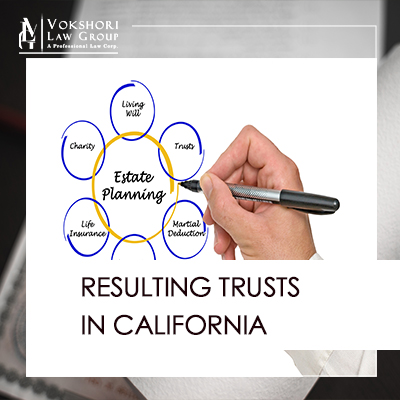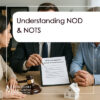
Trusts are created by property owners to protect certain assets, privately transfer wealth, and reduce taxes. However, trusts can fail and not operate as intended. In these situations, a probate judge could invoke a “resulting trust” as an equitable remedy to properly transfer the property, carry out the terms of the trust agreement, and protect the positions of the beneficiaries.
When trusts fail and assets need reassignment, the Vokshori Law Group’s experienced real estate litigation attorneys step in. They handle such cases to ensure a fair resolution and the proper reassignment of assets.
The Resulting Trust Remedy
There are three common reasons for a trust to fail:
- the property owner did not fully fund the trust,
- the owner did not update the trust as situations changed, or
- the beneficiaries cannot be found or may no longer be alive.
When a trust fails, the property is no longer transferred into anything. In California, the probate court has exclusive jurisdiction over trusts, even when trusts are operated outside of probate. Hence, only the probate court can create a resulting trust to follow the intentions of the trust agreement.
A resulting trust can also prevent the beneficiaries or the trustee from unjustly enriching themselves by transferring undistributed property.
The Circumstances of a Resulting Trust
Simply put, a resulting trust eliminates a failed trust by judicial action. When this happens, the trust’s creator, or the prior property owner, becomes the beneficiary, and the trust assets are returned. If this property owner is no longer alive, the property will pass to the heirs named in a valid will or under California’s intestacy laws.
Resulting Trusts vs. Constructive Trusts
The terms “resulting” and “constructive” trusts are often used interchangeably—and incorrectly. Although both prevent the unjust enrichment of a beneficiary or the trustee and are a form of equitable relief, these trusts serve different purposes.
Resulting trusts are the remedy when the failure of a trust is unintentional. Constructive trusts are created when fraud or theft occurs.
When a probate court orders a constructive trust, the person/entity holding title to the property is no longer the legal owner. The owner is established through the court’s process, and this owner will receive all benefits of ownership, including any increased interest and value.
Resulting trusts become necessary through circumstance, whereas constructive trusts become necessary through an active wrong.
The Defenses to a Resulting Trust
If a resulting trust is sought by the trust’s creator to prohibit unjust enrichment, the trustee has two possible defenses.
- Unclean Hands. If the property owner who created the trust acted in bad faith, the court may deny the resulting trust. The court could interpret an action in bad faith as the owner waiving their right to relief.
- Laches. A property owner must act within a reasonable time to bring a suit for a resulting trust. If the trustee can prove undue harm by the owner’s failure to act as time was of the essence, the court may refuse to invoke an equitable remedy to benefit the owner.
The burden of proof is on the trustee in each of these defenses.
Contact an Experienced Real Estate Litigation Attorney Today
When a trust fails, resulting trusts are created to fulfill the intentions of a trust agreement. Even when the intentions are clear, the probate court must create a resulting trust to remedy the circumstance, and an experienced real estate litigation attorney is needed.
Equitable remedies are court actions.
If you are a property owner in California who’s looking for guidance, Vokshori Law Group can help.
We are a full-service law firm with expertise in real estate law. Our real estate lawyers prioritize communication with our clients and strive to provide personalized legal services that meet your specific needs.
For more information or to schedule a consultation, please contact Vokshori Law Group at (855) 855-2608 or visit www.VokLaw.com to learn more.






